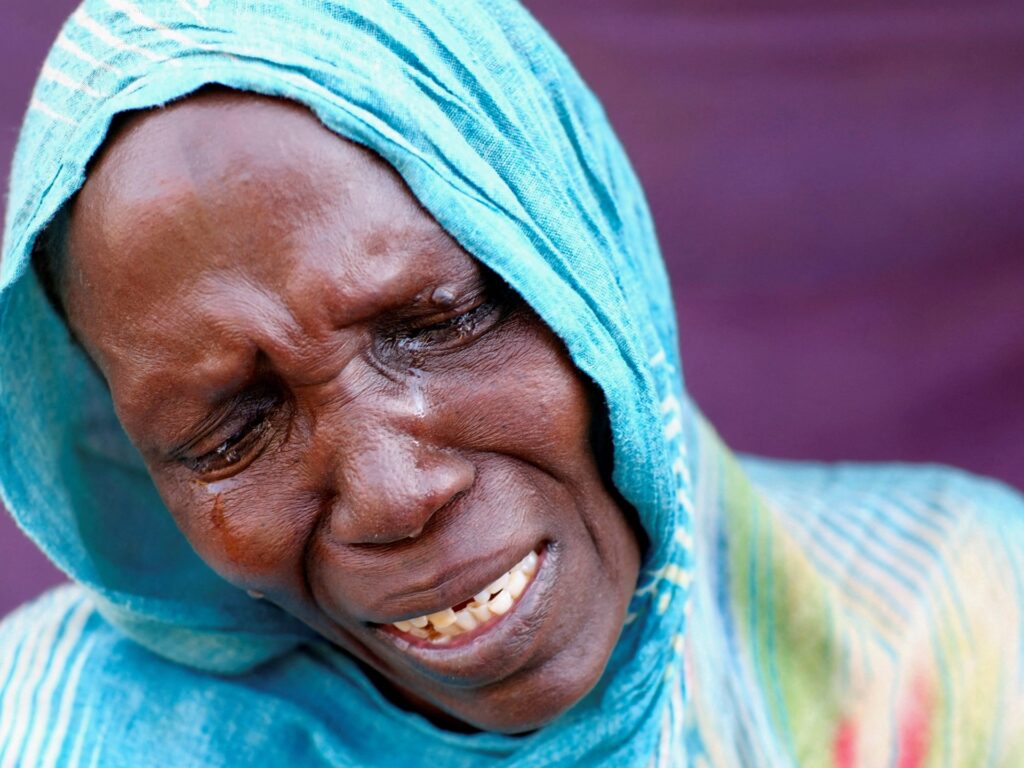The United Nations Human Rights Office in Sudan says that “brutal attacks” are escalating in el-Fasher after the paramilitary Rapid Support Forces (RSF) seized the city in the western region of Darfur last month.
“Over the past 10 days, el-Fasher has witnessed an escalation of brutal attacks. It has become a city of grief,” Li Fung, the UN’s human rights representative in Sudan, said in a video published on X on Saturday.
Recommended Stories
list of 3 itemsend of list
“Civilians who survived 18 months of siege and hostilities are now enduring atrocities of an unimaginable scale,” she said.
“Hundreds have been killed, including women, children and the wounded, who sought safety in hospitals and schools. Entire families were cut down as they fled. Others have simply vanished.”
The warning comes as aid groups said that thousands of people who fled the capital of North Darfur state face dire conditions in the town of Tawila.
Adam Rojal, the spokesperson for the Sudan’s IDPs and Refugee Camps aid group, told the Associated Press (AP) news agency that more than 16,000 people had arrived in Tawila, with many in desperate need of food, medicine, shelter materials and psychological support.
Video footage from the aid group showed displaced people in a barren area with barely enough tents, many of them improvised from patched tarps and sheets. Rojal said that some families were surviving on just one meal a day.
On Friday, Doctors Without Borders, known by its French initials MSF, reported “extremely high levels of malnutrition among children and adults”.
Mathilde Vu, the advocacy manager for the Norwegian Refugee Council (NRC) in Sudan, told the AFP news agency that many families arriving in Tawila came with “children who are not their own”.
“That means that they have to come with children who have lost their parents on the way, either because they’ve been disappeared, disappeared in a chaos, or they’ve been detained, or they’ve been killed,” she said.
Tawila is just one of several locations to which people fled after the RSF took over el-Fasher, the last Sudanese military stronghold in Sudan’s western Darfur region, on October 26.
A report from Yale University’s Humanitarian Research Lab on October 28 found evidence of “mass killings”, including apparent pools of blood that were visible in satellite imagery.
The International Organization for Migration estimates that about 82,000 people had fled the city and surrounding areas as of November 4, heading to Tawila, Kebkabiya, Melit and Kutum.
El-Fasher had a population of approximately 260,000 before the RSF takeover. The UN’s human rights chief, Volker Turk, said on Friday that civilians still trapped there were being prevented from leaving.
“I fear that the abominable atrocities such as summary executions, rape and ethnically motivated violence are continuing within the city,” he added.
El-Obeid braces for RSF assault
As the humanitarian crisis in Darfur spirals, the conflict has spread to the neighbouring Kordofan region.
Early this week, a drone attack in el-Obeid, the capital of the North Kordofan province, killed at least 40 people and wounded dozens more.
A military official speaking on condition of anonymity told the AP on Saturday that the army intercepted two Chinese-made drones targeting el-Obeid on Saturday morning.
Locals’ fears of an RSF assault have been heightened by the group’s recent capture of the town of Bara, located about 60km (36 miles) north, which had prompted more than 36,000 people to flee the town, according to the UN.
El-Obeid, the capital of North Kordofan state, sits on a key supply route linking Darfur and Khartoum, which is roughly 400km (250 miles) away.
Its takeover would be a strategic prize for the RSF, which has been at war with Sudan’s army since April 2023.
Ceasefire proposal
At least 40,000 people have been killed by the conflict, according to the World Health Organization. Aid groups say the true death toll could be many times higher.
After two years of war, there appears to be no sign of de-escalation, despite a truce proposal put forward by the Quad, a group comprising international mediators – Egypt, Saudi Arabia, the United Arab Emirates and the United States.
On Thursday, the RSF had responded positively to the idea, though the following day, explosions were reported in the Khartoum area and the town of Atbara to the north of the capital – both are held by the army.
The ceasefire plan would see a three-month humanitarian pause, followed by a permanent ceasefire that would ostensibly pave the way for an eventual political transition to civilian government.
However, the government, backed by the army, which controls most of Sudan’s north, east and centre, including Khartoum, has yet to publicly respond to the proposal.
On Saturday, Darfur Governor Minni Arko Minnawi said on X that any ceasefire that did not provide for the RSF’s withdrawal would mean Sudan’s division.
The fall of el-Fasher gave the RSF control of all five state capitals in the vast western region, creating a de-facto split in the nation.
https://www.aljazeera.com/news/2025/11/8/un-rights-office-warns-of-unimaginable-atrocities-in-sudans-el-fasher?traffic_source=rss


